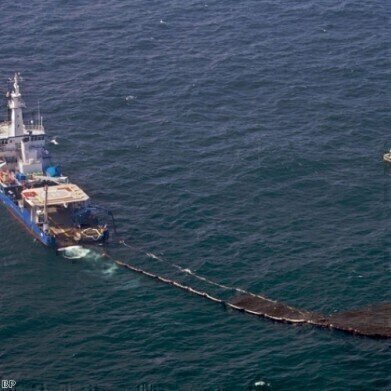-
 The affected area could remain damaged for many years, according to new research
The affected area could remain damaged for many years, according to new research
Fuel for Thought
Recovery from Gulf of Mexico oil spill 'could take decades'
Sep 26 2013
The 2010 Gulf of Mexico oil spill, which was a result of a rupture of BP's Macondo well, could take years to clean up, according to a new study. The deep-sea ecosystem throughout the area that was affected by the massive spill could be damaged for decades, says the research, which was conducted for the National Oceanic and Atmospheric Administration.
An area around 60 square miles wide could be recovering from the huge amount of oil that spilled from the well in 2010 for many years, according to a new report that was published in the online journal 'PLoS One'. The area worst affected is the nine square miles around the actual site of the spill, with more moderate damage spreading throughout the rest of the area. The biodiversity that was once thriving at the bottom of the area has been found to be hugely reduced by the oil spill.
According to Paul Montagna, author of the report and professor of ecosystems and modelling, the recovery time for the area is so long because the water a mile beneath the surface is incredibly cold, meaning the oil that remains in the water will take longer to decay than it would in shallower water.
The 2010 spill originated from the Deepwater Horizon oil rig and resulted in the death's of 11 crew members. This disaster triggered the huge spill from the well that took months to contain and is now the worst oil spill recorded in the history of the US.
Samples were taken from seafloor sediment and the organisms that live within it. It was discovered that total petroleum hydrocarbons, barium and polycyclic aromatic hydrocarbons and other chemicals from the oil and drilling operation were found to have penetrated deep into the sea floor sediment. It was discovered that the areas in which these chemicals were located, in varying concentrations, also suffered from a lack of diversity in organisms.
Digital Edition
PIN 25.1 Feb/March
March 2024
In This Edition Safety - The technology behind the ION Science Tiger XT - Safety with ammonia and LOHCs as hydrogen carriers Analytical Instrumentation - Discussion on new tribology te...
View all digital editions
Events
Apr 28 2024 Montreal, Quebec, Canada
Apr 30 2024 Birmingham, UK
May 03 2024 Seoul, South Korea
May 05 2024 Seville, Spain
May 06 2024 Riyadh, Saudi Arabia

















